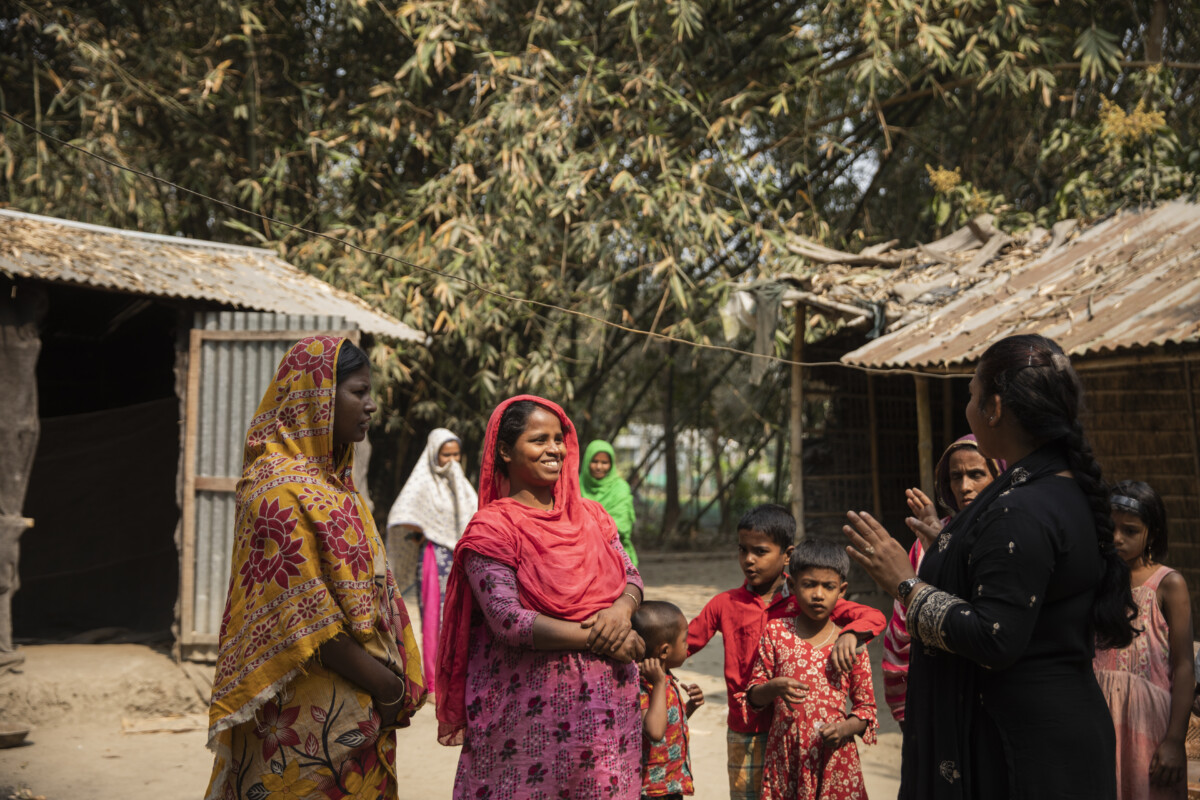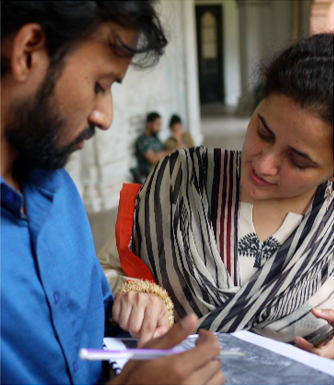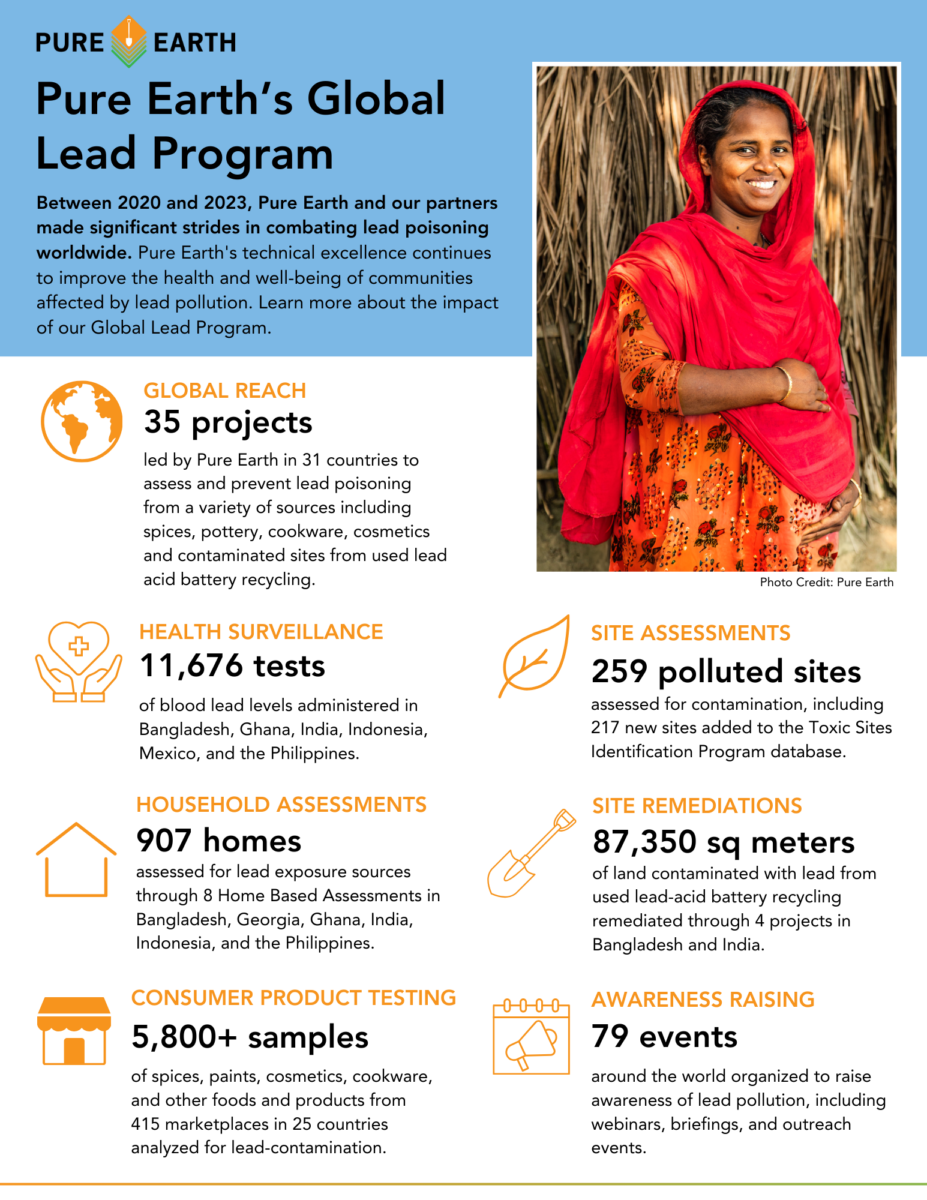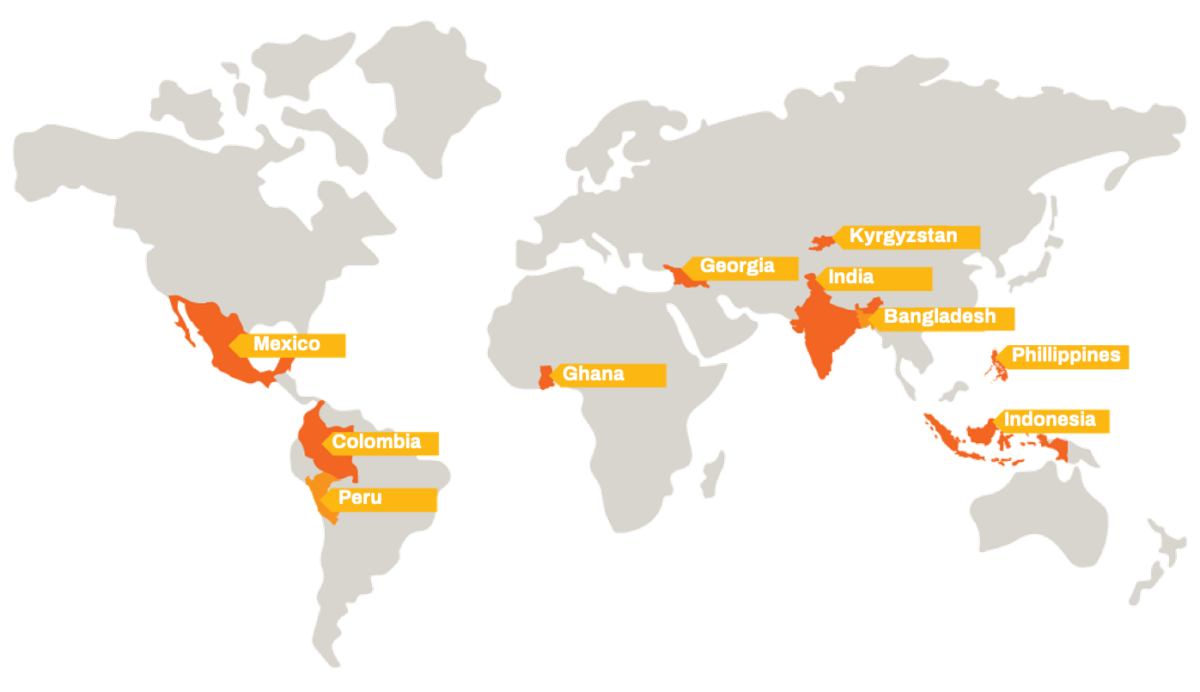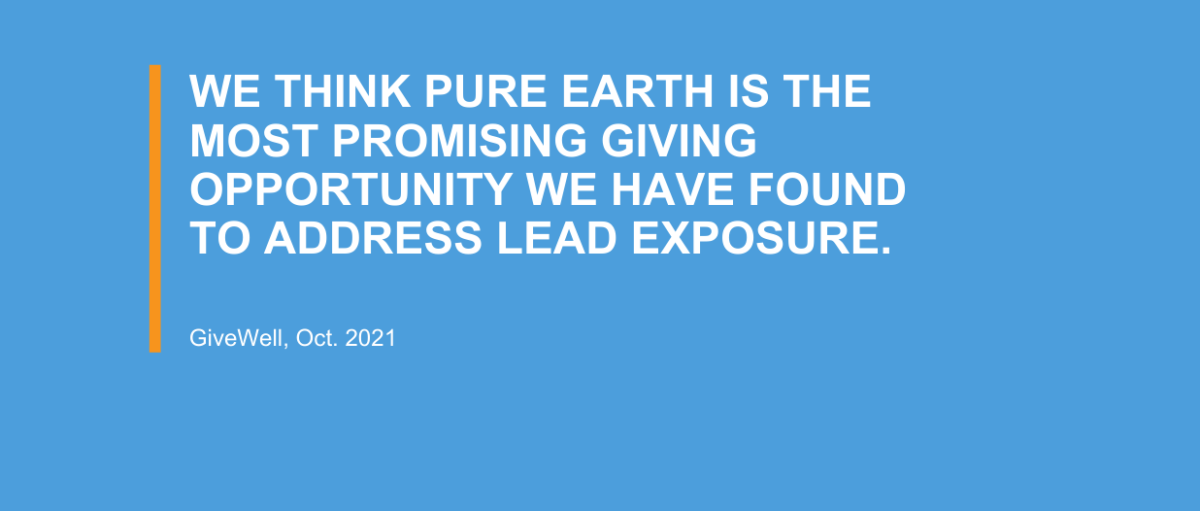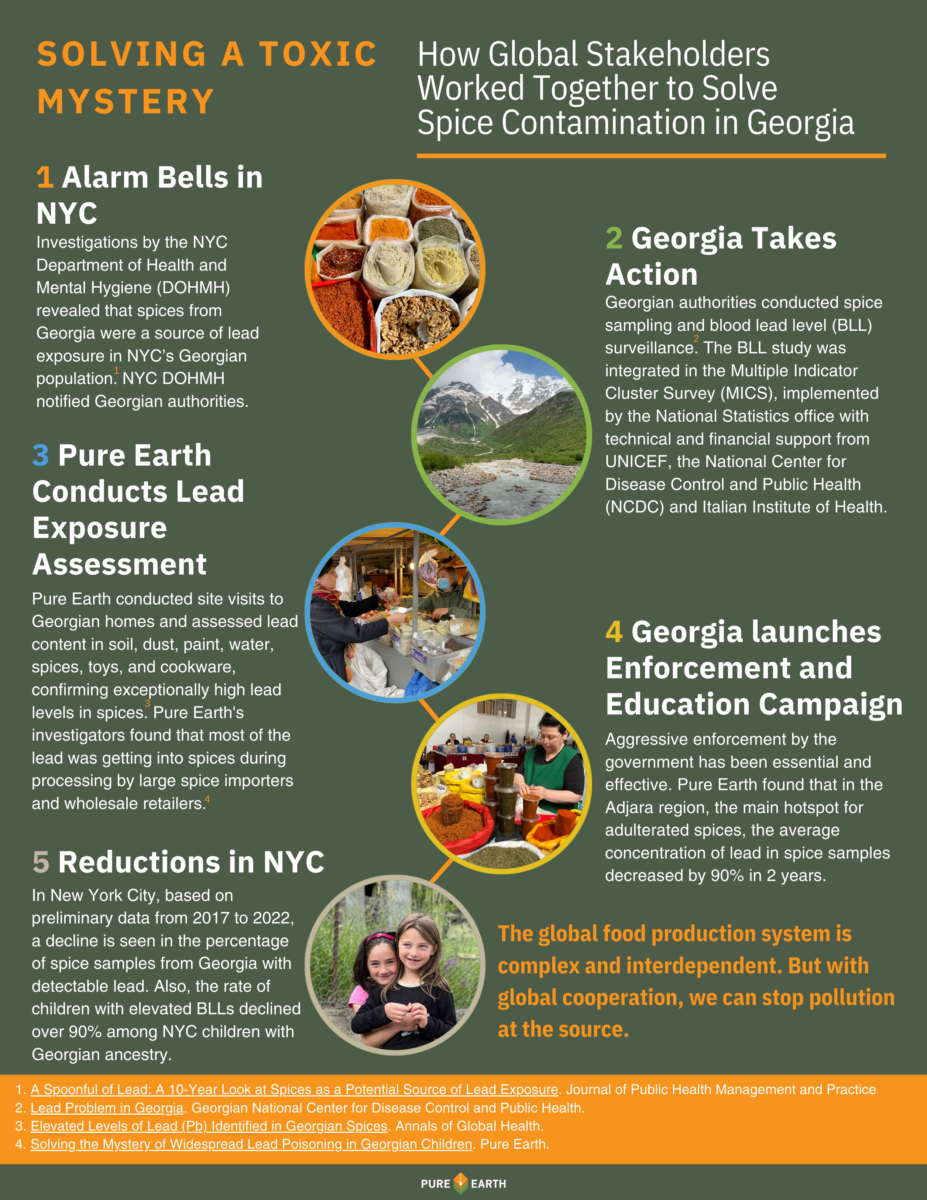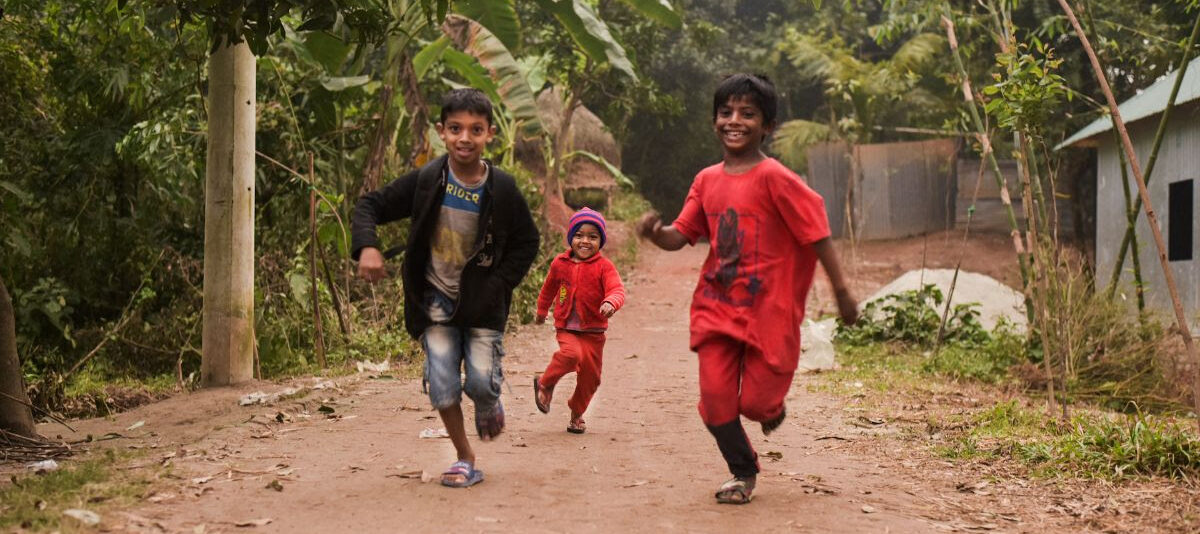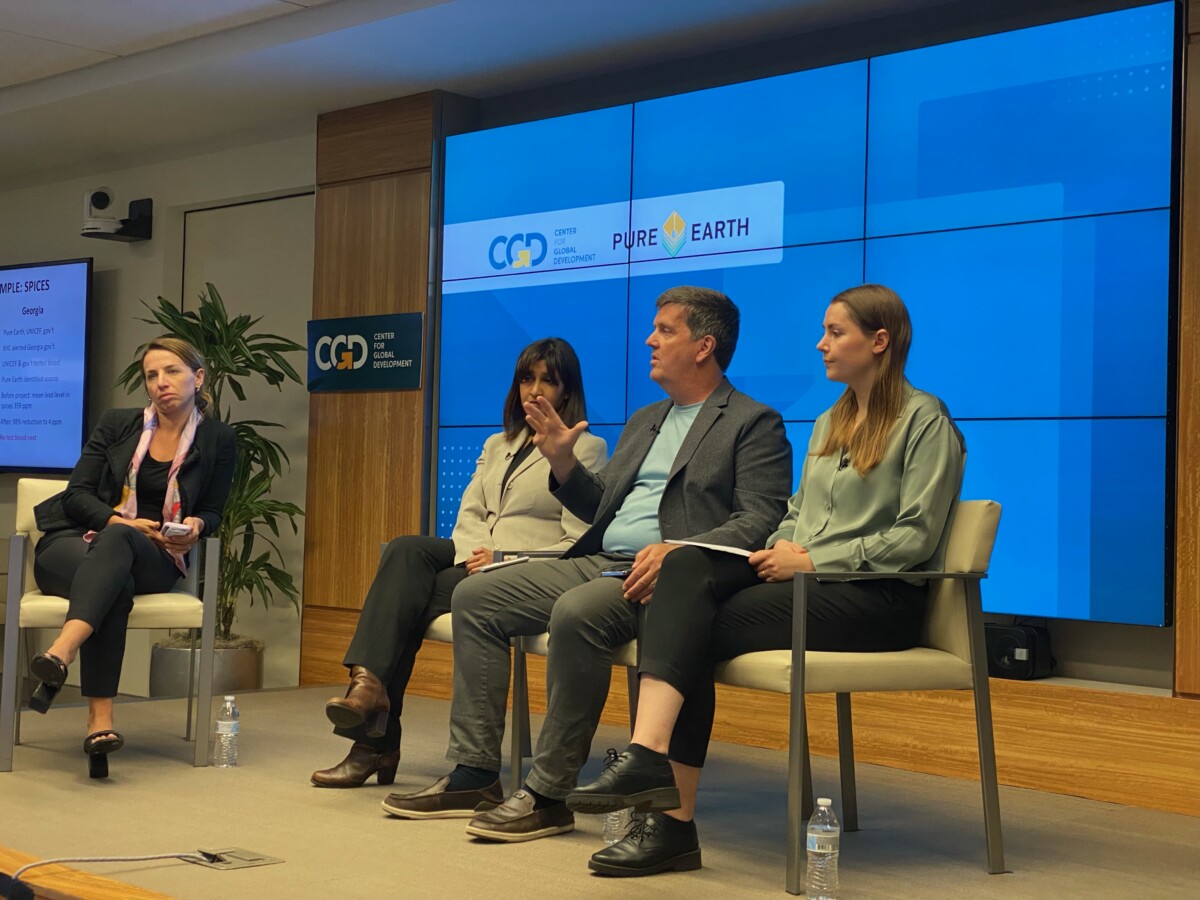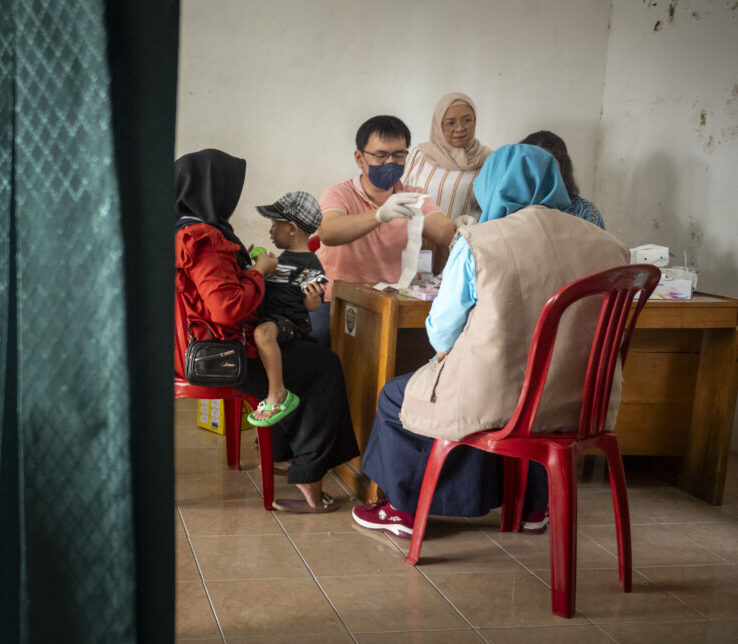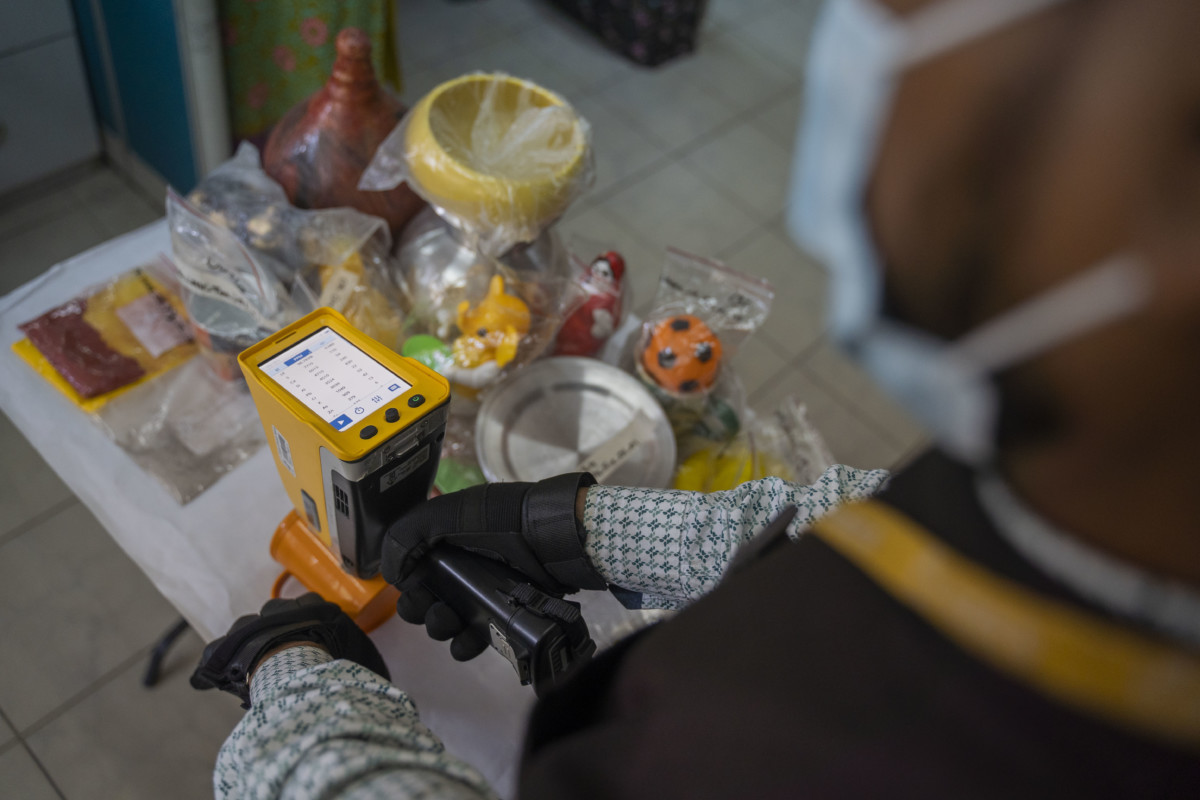The Global Lead Program
Pure Earth’s Global Lead Program aims to prevent and reduce lead poisoning in low- and middle-income countries by removing lead contamination sources and/or by reducing human exposure to them. We achieve this through pragmatic interventions that generate data and knowledge, improve regulatory frameworks, remediate lead hazards, improve the environmental performance of industry, facilitate the adoption of lead substitutes in production processes (e.g., pottery glaze), and increase resources to address lead pollution.
Pure Earth applies a practical, solution-driven approach. We combine advocacy, social and behavioral change strategies, and technical assistance with effective implementation. Our approach is interdisciplinary, bringing together environmental science and engineering, public health, social and medical sciences, and other methodologies to fulfill our objectives.
The Global Lead Program has been instrumental in elevating lead exposure as a priority for action by governments, policymakers, major funders, and other national and global actors. By bringing greater visibility and increased understanding of lead exposure through the generation of new data and evidence on its prevalence, severity, and sources, and through advocacy around impacts and interventions to prevent or mitigate it, the importance of tackling lead exposure is steadily gaining traction.
Pure Earth’s 5-Phase Approach to Solving Lead Poisoning
Our goal is to measurably and sustainably reduce lead pollution and poisoning where we work and to encourage and enable increased action by other stakeholders in the global health and development sphere.
Pure Earth’s Global Lead Program strategy is designed around a framework consisting of five core elements that apply in all countries. This 5-phase approach was informed by our years of experience implementing over 50 projects in multiple countries to mitigate lead exposure.
- Health Surveillance: Conduct baseline blood lead level (BLL) testing and analysis to understand prevalence, severity and location of exposure.
- Source Analyses: Measure likely sources in homes where people have elevated lead levels, to determine the most significant sources of exposure.
- Source-specific Interventions: Design and implement a range of interventions to reduce exposures and the use or release of lead in products and industrial processes.
- Communications: Disseminate findings and recommendations to inform and build support with governments and funders for action.
- Institutional Strengthening: Enhance the capabilities of government institutions to plan, implement, and sustain effective public health programs to reduce lead poisoning.
Global Lead Program Achievements: 2020-2023
Between 2020 and 2023, Pure Earth and our partners made significant strides in combating lead poisoning worldwide. Pure Earth’s technical excellence continues to improve the health and well-being of communities affected by lead pollution. Learn more about the impact of our Global Lead Program.
Our Global Presence
Pure Earth prioritizes local knowledge and solutions. Pure Earth is working to address lead poisoning in these focal countries under the Global Lead Program: Bangladesh, Colombia, Georgia, Ghana, India, Indonesia, Kyrgyzstan, Mexico, Peru, and the Philippines.
Priority countries on a “watch list” due to high levels of lead poisoning are Zambia, Zimbabwe, Egypt, Pakistan, and Nigeria. These remain a priority for program expansion if and when additional resources are secured.
Pure Earth Is A Global Leader In Addressing Lead Poisoning, Reducing Children’s Exposures
Pure Earth has been acknowledged as a leading organization addressing global childhood lead poisoning. In their Global Lead Exposure report, think tank Rethink Priorities evaluated the impact of Pure Earth’s work and confirmed the effectiveness of our approach and programs.
New Program: Strengthening Health Systems to Reduce Lead Exposure
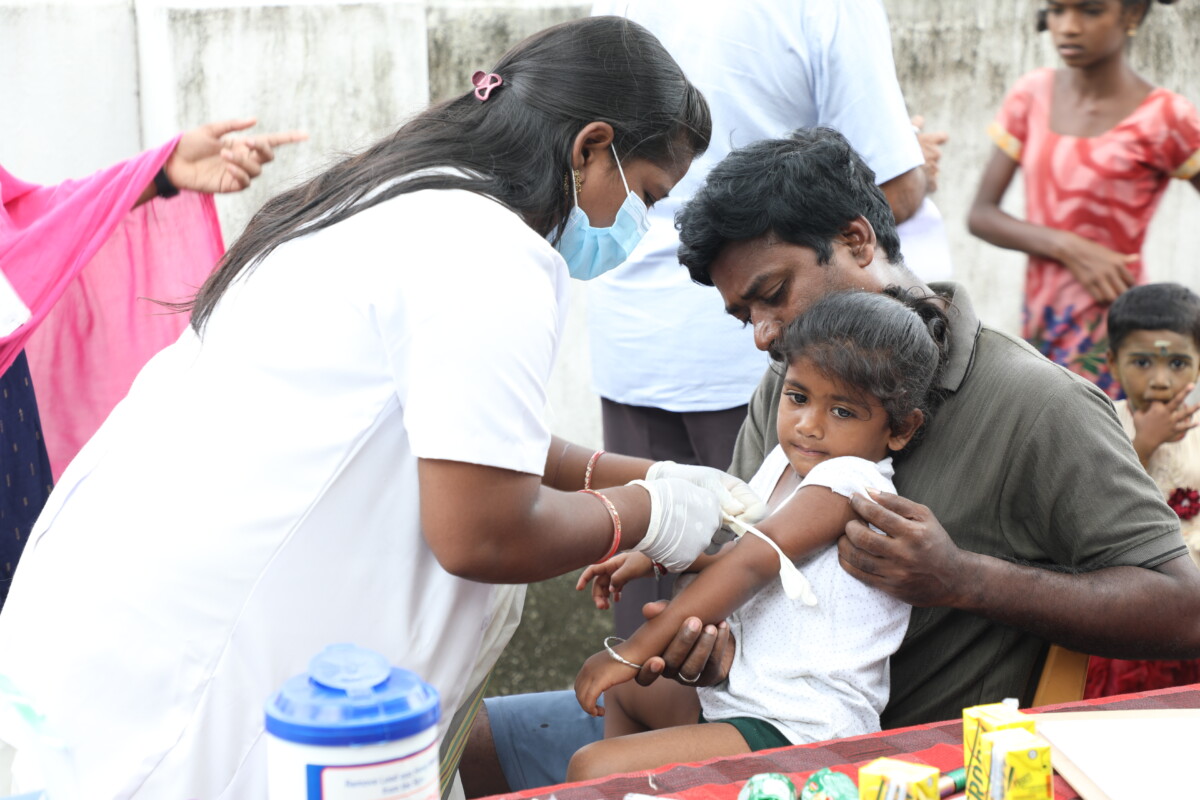
In 2023, with a grant from Takeda Pharmaceutical Limited (Takeda), Pure Earth launched Strengthening Health Systems to Reduce Lead Exposure, a partnership between Pure Earth and the Ministries of Health in Colombia, Indonesia, Kyrgyzstan, Maharashtra, India, and Peru to strengthen each country’s national healthcare system to better prevent, identify, and treat lead poisoning.
Pure Earth will be collaborating with the ministries of health in each country to design and implement new national programs to identify, monitor and reduce lead exposure.
By enhancing clinical education and guidelines, strengthening health surveillance technology, and educating teachers and parents on the dangers of lead, countries will be able to better protect children and future generations from lead poisoning.
Spotlight on Consumer Products
Global Study of Lead in Consumer Products
Rapid Market Screening to assess lead concentrations in consumer products across 25 low- and middle-income countries (published in Scientific Reports in 2024) is a novel, wide-reaching assessment of lead contamination as part of the Rapid Market Screening (RMS) program.
While prior studies have identified lead contamination in a variety of consumer goods, the geographic variations in lead exposure sources have been poorly understood. This assessment improves our understanding of which products are more likely to be contaminated, and how contamination levels vary across a diverse set of low- and middle-income countries.
Across the 5,000+ samples collected in 25 countries, 18% were lead contaminated at levels that exceed relevant reference levels.
Metallic and ceramic foodware, paints, toys, and cosmetics contained the highest levels of lead.
Solving a Toxic Mystery: Eliminating Lead-Contaminated Spices in Georgia
In 2019, Georgia faced a childhood lead poisoning crisis. A MICS survey revealed that 41% of children ages 2-7 in the country had blood lead levels at or above 5 μg/dL (the level at which the CDC recommends intervention). This was a staggering discovery. Even small doses of lead in children can slow development and cause learning disabilities, among other dangerous health effects.
The Georgian government worked with Pure Earth to better understand the source of the widespread lead poisoning. In under two years, government and Pure Earth investigators were not only able to identify the source – lead in spices – but also help stop the flow of contaminated spices into Georgian markets almost completely.
Watch this video, read the blog, or download our infographic to learn more.

